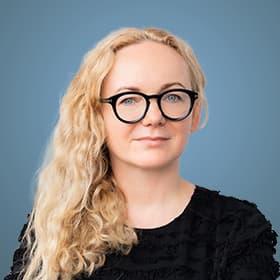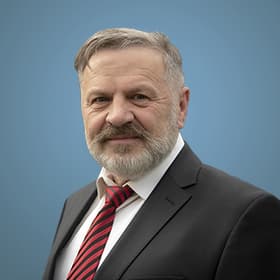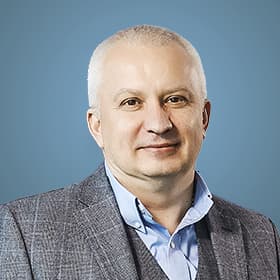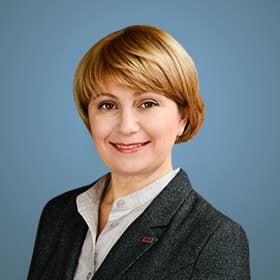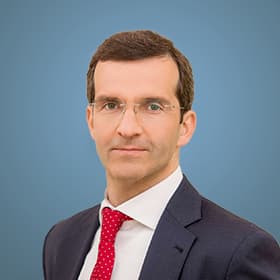Ensuring Transparency and Accountability in Ukraine’s Reconstruction: From Audit to Trust
Ensuring Transparency and Accountability in Ukraine’s Reconstruction: From Audit to Trust
Amid the ongoing war and Ukraine’s reconstruction same time, trust in financial processes has become critically important. This very issue was the main topic of a recent event hosted by BDO in Ukraine in Warsaw during the ReBuild Ukraine 2025 Conference.
The conference gathered leading representatives from various sectors, including government institutions, NGOs, and public companies working with international finance, to highlight the essential role of audit and compliance in Ukraine’s reconstruction process.
Vira Savchenko, СЕО at BDO in Ukraine and Co-Chair of the Ukraine Recovery Committee at the European Business Association, opened the event by highlighting the critical importance of transparent financial practices.
She stressed: “Audit is the foundation of trust in Ukraine. Transparency and responsible use of donor resources are essential for rebuilding the country. Without these, there can be no progress”.
The event featured discussions on:
- today’s audit challenges faced by organizations receiving international funding
- frequent pitfalls and how to avoid them
- real-world experience with public and non-governmental partners
- tools to boost transparency and financial efficiency.
The event provided a space for open dialogue between auditors and beneficiaries of donor support and funding. The discussion centered on raising transparency and accountability standards — critical for earning international partners’ trust and driving Ukraine’s sustainable recovery.
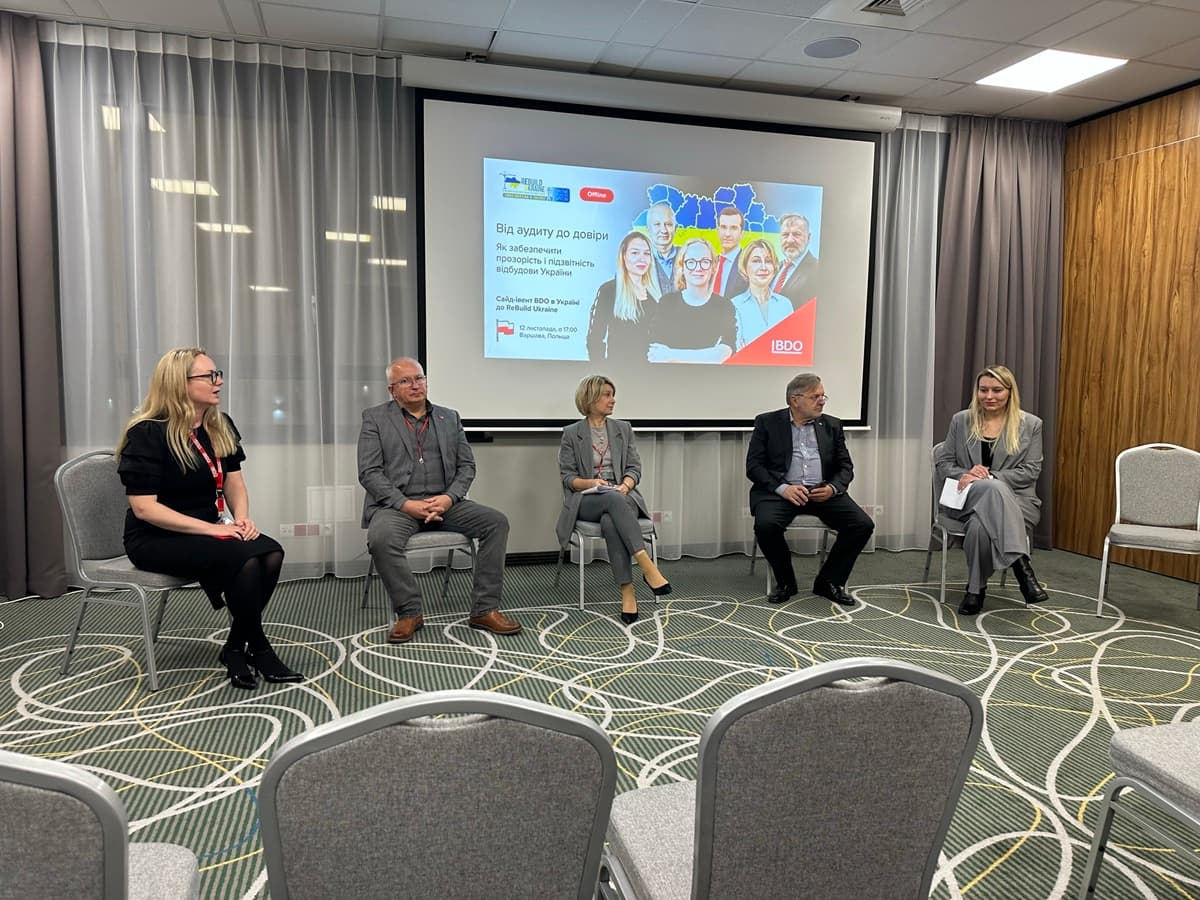
Wartime audits: how donor expectations have changed in Ukraine
The first speaker, Olexandr Nikolayenko, Key Audit Partner at BDO in Ukraine, highlighted a major shift in how international donors like the World Bank and EBRD approach financial reporting and audits since the full-scale invasion began. While formal audit standards remain unchanged, donors now demand far greater detail in reporting — especially on internal controls, property damage, and how organizations respond to wartime challenges.He emphasized what donors now require:
- Transparent fund flows and a detailed description of every transaction
- Compliance with international standards on auditing and financial reporting
- Analytical accounting to verify every single expense, especially in humanitarian projects
- Organizations to provide evidence of project implementation even under challenging conditions.
“Donors expect maximum transparency: detailed reporting, clear analytical records, and confirmation of every hryvnia spent. The requirements have not become stricter, but they have become significantly deeper — particularly regarding control over the use of funds and reflecting the impact of the war in financial statements.” — Olexandr noted.
He also stressed that auditors act as intermediaries between businesses and donors, helping organizations meet these requirements. Special attention should be given to nonprofit organizations, which often face these reporting and audit standards for the first time.
Donor expectations and ethical standards for auditing grant projects
Liliya Chernysh, Key Audit Partner, focused on the current requirements of international donors and financial institutions regarding transparency, efficient use of funds, review of grant project reporting. She noted that since 2022, the number of new NGOs in Ukraine has grown rapidly (over 6,000 new NGOs were registered by 2022, and grant aid to Ukraine exceeded €40 billion). At the same time, reporting and internal control requirements have become more demanding.“International donors expect Ukrainian organizations to provide transparent, clear, and publicly accessible reporting. Every transaction must be supported by proper documentation, and expenses should be effectively allocated across projects. Openness and high-quality accounting are the keys to trust and further cooperation.” — Liliya emphasized.
Her presentation highlighted several critical aspects:
- The need to implement clear internal control policies and procedures
- The importance of documentary evidence for every financial transaction
- The role of independent assessment of potential grantees at the application stage
- Current risks, including those related to corruption and inefficient use of funds
- Requirements for public disclosure of both financial and non-financial reporting.
Liliya stressed that transparency and adherence to ethical audit standards are the foundation of donor trust:
“Our mission as auditors is to remain uncompromising and strictly follow the ethical principles of our profession. This is our core standard, and it must guide every decision and action we take.”
Common mistakes made by grant recipients: how to avoid risks and building donor trust
Svetlana Mochevinskaya, the expert in international financial reporting standards, highlighted the most frequent mistakes NGOs and grant recipients make. She noted that most issues arise in newly established organizations due to a lack of experience, information, or qualified staff. These shortcomings can lead to auditor remarks that affect further funding and the organization’s reputation.Among the typical problems, Svetlana highlighted:
- Incorrect accounting for staff costs (e.g., using sole proprietorship contracts or civil agreements, which often conflict with donor requirements)
- Failure to follow procedures for material assets and counting of physical inventory
- Non-compliance with donor reporting requirements, including acceptance certificates, timely reporting, accurate form completion, and proper reflection of expenses in different currencies
- Risks of inefficient fund use, which may result in donors demanding repayment of part of the grant.
Svetlana emphasized that all these mistakes can create reputational risks for organizations.
She urged not to view auditors as controllers seeking punishment, but as partners helping organizations meet donor expectations and implement projects effectively: “The key is not to fear auditors. Our shared goal is to confirm that the organization uses funds efficiently and that donors can trust the results. An auditor’s role is not to find mistakes, but to verify that everything is done correctly.”
Financial reporting and international audit: the key to attracting investment for Ukrainian companies
Vitaliy Strukov, Corporate Finance Managing Partner, shared his experience cooperating with international financial institutions such as the EBRD, as well as Dutch, Danish, and German banks and others. He emphasized that in recent years, these organizations have significantly increased financing for Ukrainian companies, particularly in the private sector.Vitaliy stressed that to attract international investments and loans, Ukrainian companies must meet strict requirements for financial reporting. International audit and transparency of financial transactions are mandatory conditions for project funding consideration. He pointed out common challenges faced by Ukrainian businesses in this context:
- National reporting often fails to reflect the true financial position of the business
- Lack of asset revaluation and proper accounting for receivables and payables
- Insufficient preparation for reporting under international standards.
Vitaliy noted that international auditors help companies prepare for investor requirements, conduct asset revaluation, verify counterparties, and ensure compliance with global reporting standards. He also highlighted the growing importance of sustainability reporting (ESG), that is becoming an additional advantage for companies seeking financing.
“International audit is not just a formality. It is the key to earning the trust of creditors and investors, and high-quality financial reporting opens access to the best financing terms and new growth opportunities for Ukrainian companies.” — Vitaliy Strukov emphasized.
Evolution of the auditor’s profession: challenges, responsibilities, and secrets to success
Sergiy Balchenko, Managing Partner at BDO in Ukraine and the auditor with over 35 years of experience, shared insights on transformation of the auditing profession and today’s quality standards for audit services. He emphasized that today an auditor’s role extends beyond the client to society, ensuring the interests of taxpayers and donors are protected.Sergiy Oleksiyovych pointed out that high-quality auditing requires:
- Continuous professional development
- In-depth knowledge of financial instruments, especially in complex sectors such as banking and insurance
- An excellent reputation for both the company and each of its employees
- Transparency and compliance with government requirements and international standards.
He also highlighted the need to carefully select an auditor:
- Verify the company’s registration, experience, and the reputation of its specialists
- Work with firms that have passed regulatory quality control checks without remarks.
“Our experience, continuous learning, and responsibility to society — these are the true secrets to success in this profession” — Sergiy Oleksiyovych noted.
He added that the audit business is a team effort, where success depends on the professionalism of every team member. He compared the auditor’s profession to the mechanism of a watch, where all parts must work in perfect harmony.
“Cultural Forces of Ukraine”: evolution of the initiative, the power of art, and integrating experience
The final presentation in our discussion was the story of Mykolay Serga, the head of the “Cultural Forces of Ukraine”, who shared the story of how the initiative evolved — from a one-person effort into a powerful charitable foundation and a platform for hundreds of participants. He spoke about creating mobile cultural teams that operate on the frontlines, supporting soldiers through art, psychological assistance, and projects that strengthen morale.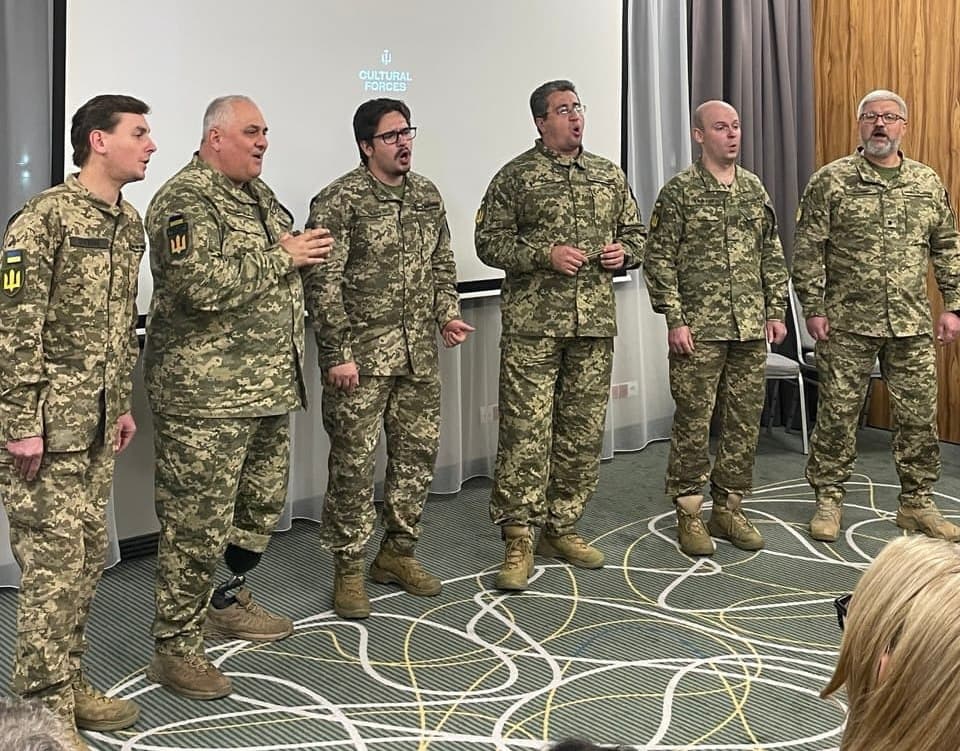
Mykolay stressed that the organization’s growth is a direct response to the real challenges of war. Cultural Forces brings together the experience of the military, business, NGOs, and creative professionals to deliver unique initiatives: live music performances, educational and informational projects, the “RadioPikhota” station, book campaigns for soldiers, and financial literacy lectures.
A strong emphasis is placed on psychological rehabilitation, preserving identity, and building trust within the military community.
He noted: “Art is a tool that helps both soldiers and civilians navigate difficult times, find answers to personal questions, and make sense of their experiences. In our team, honesty and sincerity come first — because that’s what builds trust and gives us the strength to move forward.”
Vira Savchenko stressed the importance of integrating business, civil society, state-owned enterprises, and the military — especially in frontline regions.
She noted: “Today, the integration of business, civil society, state-owned companies and the military is not just a trend, but a necessity for rebuilding the country. We see businesses in frontline areas opening veteran support offices, assisting returning soldiers, and partnering with initiatives that truly change lives. These partnerships are shaping a new level of trust and unity in Ukraine.”
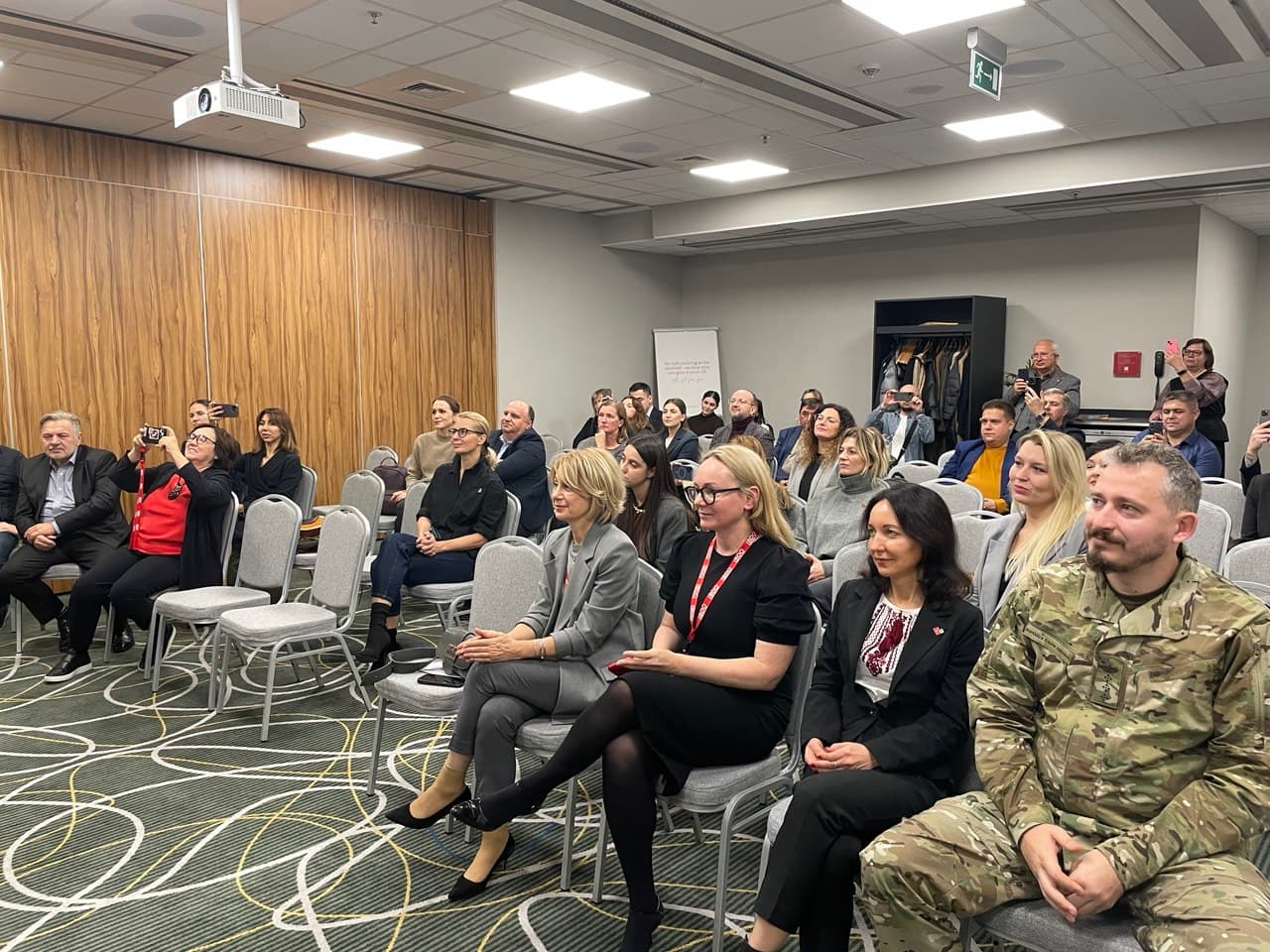
In summary, the event’s guests and BDO in Ukraine participants discussed key challenges and solutions for strengthening trust in the country’s recovery process — from transparent financial reporting and ethical audit standards to unique cultural initiatives that support both soldiers and civilians.
All speakers emphasized that only through openness, professionalism, partnership, and genuine support can we ensure the effective use of international aid, attract new investments, and lay the foundation for Ukraine’s sustainable development.
Be part of the effort — let’s build trust and shape Ukraine’s future together.
